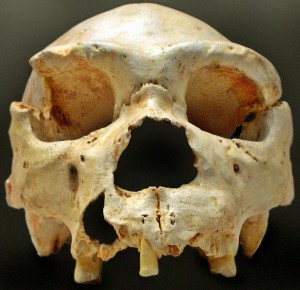It is not the first time that ancient remains are found while modern cities are being developed and expanded. The latest news is that archaeologists working with London’s Crossrail project have uncovered 20 skulls believed to be from the Roman period.
The archeologists believe the bones were washed from a nearby burial site along one of London’s “lost” rivers. In the last year archaeologists in London have also found about 10,000 Roman items at a nearby site. Could the latest finds give new insights into the lives of Roman people? One thing is for sure that the archaeologists believe that the Crossrail Project which currently operates over 40 worksites and archaeological investigations will lead to further discoveries hidden beneath the streets of London and say it could transform our understanding of Roman London.
The Walbrook river which was paved over in the 15th Century, divided the western and eastern parts of the city, its moist muddy walls providing exceptionally good conditions for artifacts to be preserved. The discoveries were found about 3 meters below ground and underneath the Bedlam cemetery, a burial ground where hundreds of skeletons have been unearthed. Roman law required burial outside the city, which meant there were burial sites circled around the town and the skulls were probably buried in different environments, shown by their shades of brown and grey as reported by BBC.
Even though forensic studies are still needed to be done, the scientists and archeologists say that more information about the sex and age will emerge through further investigations. For example chemical markers on the teeth could reveal where these people came from and what sorts of food they ate making it easier for students of archeology to learn more about life in that period and location.
http://www.bbc.co.uk/news/science-environment-24351460
















